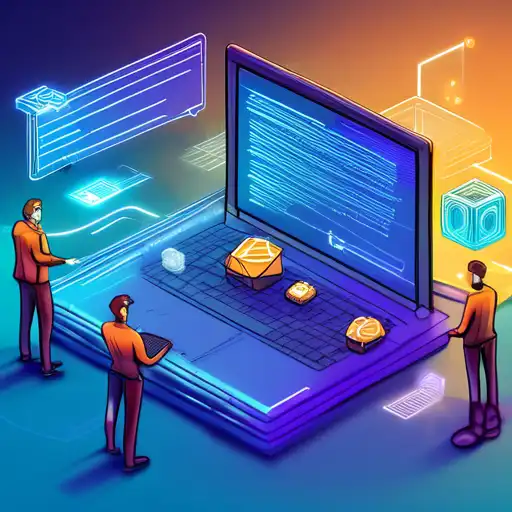Introduction to Smart Contracts
Smart contracts represent a pivotal innovation in blockchain technology, automating agreements without the need for intermediaries. These digital contracts execute transactions automatically when predetermined conditions are met, offering a blend of security, transparency, and efficiency.
How Smart Contracts Work
At their core, smart contracts are self-executing contracts with the terms of the agreement directly written into code. They run on the blockchain, ensuring that once deployed, they cannot be altered, providing a tamper-proof system for all parties involved.
Benefits of Smart Contracts
- Trust and Transparency: All parties can view the contract terms, and the decentralized nature of blockchain ensures no single party can manipulate the outcome.
- Security: Encrypted and stored across a blockchain network, smart contracts are nearly impossible to hack.
- Efficiency and Speed: Automating processes reduces the time and costs associated with traditional contract execution.
- Accuracy: Eliminates human error in the execution of agreements.
Applications of Smart Contracts
Smart contracts find utility across various sectors, including finance, real estate, healthcare, and more. From automating insurance claims to streamlining property sales, their potential is vast and still being explored.
Challenges and Considerations
Despite their advantages, smart contracts face challenges such as legal recognition, scalability issues, and the need for high-quality code to prevent vulnerabilities.
Future of Smart Contracts
As blockchain technology evolves, so too will smart contracts, with advancements in AI and IoT likely to expand their capabilities and applications further.
For those interested in diving deeper into blockchain technology, exploring our guide on blockchain basics is a great next step.
Conclusion
Smart contracts are transforming how we think about and execute agreements in the digital age. By leveraging blockchain technology, they offer a secure, efficient, and transparent alternative to traditional contract mechanisms, paving the way for a more decentralized future.
